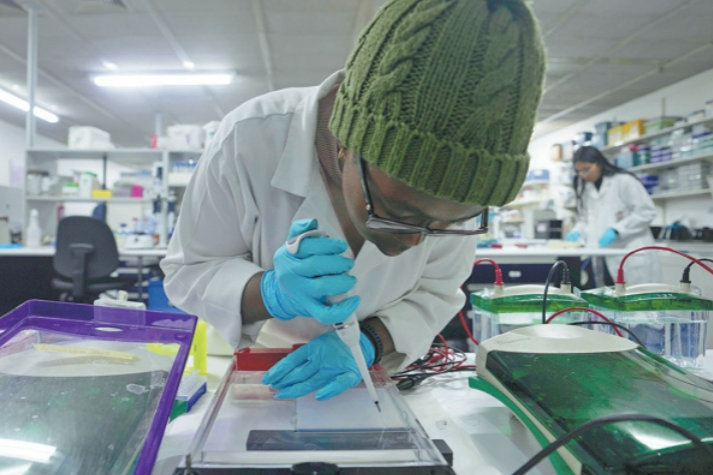JOHANNESBURG — Just a week remained before scientists in South Africa were to begin clinical trials of an HIV vaccine, and hopes were high for another step toward restricting one of history’s deadliest pandemics. Then the email arrived.
Stop all work, it said. The United States under the Donald Trump administration was withdrawing all its funding.
The news devastated the researchers who live and work in a region where more people live with HIV than anywhere else in the world. Their research project, called Brilliant, was meant to be the latest to draw on the region’s genetic diversity and deep expertise in the hope of benefiting people everywhere.
But the $46 million from the US for the project was disappearing — part of the dismantling of foreign aid by the world’s biggest donor earlier this year as Trump announced a focus on priorities at home.
South Africa has been hit especially hard because of Trump’s claims about the targeting of the country’s white Afrikaner minority. The country had been receiving about $400 million a year via USAID and the HIV-focused PEPFAR.
Now that’s gone.
Glenda Gray, who heads the Brilliant program, said the African continent has been vital to the development of HIV medication, and the US cuts threaten its capability to do such work in the future.
Significant advances have included clinical trials for lenacapavir, the world’s only twice-a-year shot to prevent HIV, recently approved for use by the US Food and Drug Administration. One study to show its efficacy involved young South Africans.
“We do the trials better, faster and cheaper than anywhere else in the world, and so, without South Africa as part of these programs, the world, in my opinion, is much poorer,” Gray said.
A team of researchers at the University of the Witwatersrand has been part of the unit developing the HIV vaccines for trials.
Inside the Wits laboratory, technician Nozipho Mlotshwa was among the young people in white gowns working on samples. But she may soon be out of a job.
Her position is grant-funded. She uses her salary to support her family and fund her studies in a country where youth unemployment hovers around 46 percent.
“It’s very sad and devastating, honestly,” she said of the US cuts and overall uncertainty.
Professor Abdullah Ely leads the team of researchers. He said the work had promising results indicating that the vaccines were producing an immune response.
But now that momentum, he said, has “all kind of had to come to a halt”.
The Brilliant program is scrambling to find money to save the project. The purchase of key equipment has stopped. South Africa’s health department says about 100 researchers for that program and others related to HIV have been laid off.
South Africa’s government has estimated that universities and science councils could lose about $107 million in US research funding over the next five years due to the aid cuts, which affect not only work on HIV but also tuberculosis — another disease with a high number of cases in the country.
Agencies Via Xinhua
